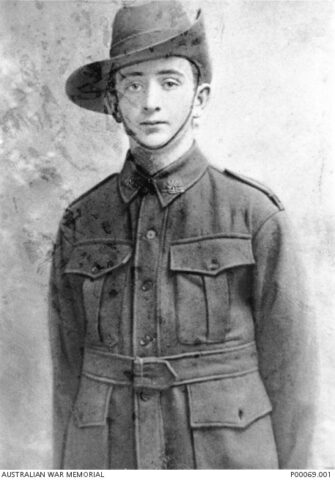Playwright and teacher Sean Riley is no stranger to youth theatre in South Australia. Having started as a freelance tutor at Urban Myth Theatre Company in 1991, he subsequently co-founded youth theatre collective SAYarts in 2014. Later, the COVID pandemic led him to create his own company, Free Agents Youth Theatre, with the aim of training young people in ensemble skills and techniques to devise a performance over an extended period, rather than working to the constraints of a typical production cycle.
“There was this sense within me that I just wanted to create theatre that I wanted to, without any restrictions of, ‘This group needs to do a show, here’s a script, we need to get it up’,” he tells InReview.
Riley notes that his approach to theatre-making – derived from a popular improvisation-based method devised by filmmaker Mike Leigh – encourages students to contribute to every aspect of a play to facilitate its development.
“Students create the world, the characters, [the] truth of the piece. Then they fill me up with months and months of improvisation, and then, like a game of kerplunk, when I feel full, I write it. Then when they come to it, they have this amazing sense of ownership.”
Much is left on the cutting-room floor, but the process empowers students to work in a highly creative way and create richly detailed characters informed by their own research and imagination.
Riley’s new play, LAMBS, sees the young artists of Free Agents Youth Theatre portraying residents of a fictionalised country town named St Jude during World War I, when many boys and young men sought an adventure across the world by signing up to the Australian Imperial Forces despite being below the minimum age of enlistment.
The ensemble members, who are aged seven to 23, have engaged with true stories of ANZACs and historical material from the period to create a compelling non-linear narrative and fictional world that brings the boys’ stories to life through a mix of soliloquies, dialogue scenes, period-accurate costuming, an original soundtrack, and film projection. Riley explains that the play takes audiences from St Jude “to No Man’s Land, an army hospital behind the frontlines, northern France and the trenches”. It also shares the perspective of female characters and explores the lives of those left at home.

Private James (Jim) Martin was perhaps the youngest soldier to serve in the Australian forces. Photo: Australian War Memorial / P00069.001
Riley says the impetus for play’s theme stemmed from his interest in recordings of WWI Diggers at the Australian War Memorial, particularly a series of interviews of surviving veterans compiled through the 1980s and ’90s. He listened to many hours of these interviews and was fascinated by the prosaic manner in which the former soldiers described extraordinary acts.
Alec Campbell – who lied about his age to enlist in 1915 and was the last ANZAC when he died aged 103 in 2002 – was one such humble hero. Campbell is said to have viewed his Gallipoli service, which he didn’t want to be glorified, as just a small part of his long and full life. Other underage soldiers, such as Private James (Jim) Martin, never came home; he died of fever in the trenches at Gallipoli aged just 14 years and nine months.
Riley says adults were complicit in sending young people to war. He recalls reading a story about a group of schoolboys in regional Victoria who signed up to fight. When their teacher found out, he signed up with them.
“Behind the work is the failure of adults to protect children. And World War I is the example of that.”
The LAMBS cast were keen to explore the theme of underage volunteer soldiers. Early on, an eight-year-old cast member brought in a list of the most popular children’s names at the turn of the century.
“It took them hours to come up with their names… they just ran with it,” Riley says.
The performance coming to Goodwood Theatre’s main stage from June 13-15 is the culmination of a 24-month devising process that includes technical work by professionals Kim Liotta (design) and Nic Mollison (lighting), alongside emerging creatives Eaden McGuinness (film projection) and Doctor Oscillator (music).
Riley says Doctor Oscillator, aka Sidney Morton-Wight, had never composed for theatre before but was keen to take on the task.

Get InReview in your inbox – free each Saturday. Local arts and culture – covered.
Thanks for signing up to the InReview newsletter.
“We’re not having cellos and violins. He’s really good at creating background noises that hit you in the sternum and create a sense of impending doom.”
One of the challenges of the play has been that the young artists of the 2020s are more aware of world events and politics than young people in rural Australia would have been in the early 20th century. Riley says they had trouble portraying the genuine innocence of youths who believed AIF propaganda about a “holiday in the sun”. However, he has been impressed by their eagerness to explore the world and their sheer creativity.
“Sometimes they just ask the most mind-blowing questions… (I’ve had to say) ‘here is the generation that doesn’t have the knowledge that you do’.”
He is also adamant about the need to engage young people with challenging topics.
“I don’t talk down to them, and I’m really rigorous about not playing into flag-waving nationalism. There are no poppies, there is no ‘Last Post’, there are no military salutes, and there aren’t guns in the show. We decided that it’s about the boys telling the audience in direct address their experience.”
LAMBS will have its premiere season at at Goodwood Theatre and Studios from June 13-15.
Support local arts journalism
Your support will help us continue the important work of InReview in publishing free professional journalism that celebrates, interrogates and amplifies arts and culture in South Australia.
Donate Here




